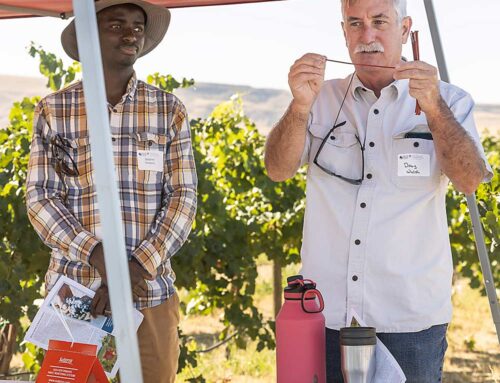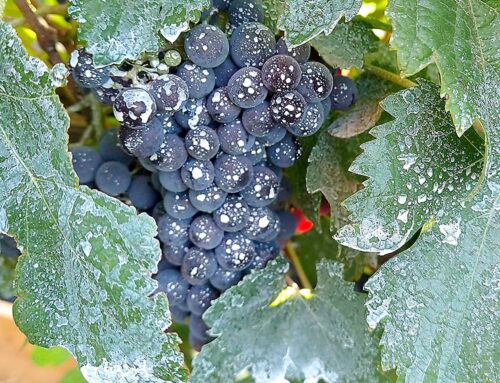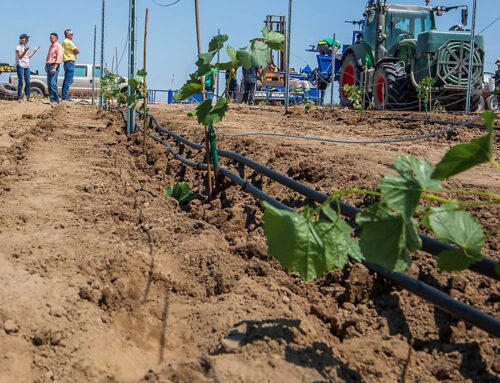A Washington State University horticulturist is evaluating viticultural practices to help growers produce top quality wine grapes in western Washington. Gary Moulton of WSU’s Northwest Washington Research and Extension Center at Mount Vernon is studying different Pinot Noir cultural practices in response to high interest from westside growers in broadening the range of varieties grown in their relatively cool climate.
Variety trials conducted the last ten years show several promising red varieties are suited to the climate. While the region has grown white varieties in the past, much of the red wine was made from grapes grown in eastern Washington, where the climate is much warmer. Moulton is experimenting with several practices to maximize quality of Pinot Noir, such as cluster thinning, using plastic row shields to reduce ripening time, vine spacing, and using growth regulators to help control canopy.
Preliminary results show no significant difference in pH, Brix, or titratable acid between Pinot Noir treatments thinned to one cluster per shoot or to two clusters per shoot. As expected, there was a significant difference in yield, ranging from four tons per acre for the two-cluster treatment compared to 2.5 tons per acre with the single cluster. Initial research suggests that higher yields do not sacrifice quality. In vines where a plastic sheet was hung on the west side of the row, Moulton observed bloom advanced by two weeks.
The sheet extended about 18 inches above and below the vine’s fruiting area and was hung in April. Maturity was advanced in the plastic treatment, and fruit developed color earlier. Grapes grown in the plastic treatment also had higher Brix, lower titratable acid, smaller clusters, and lower yields than without the plastic. Vineyardists in British Columbia, Canada, are also experimenting with growing fruit inside plastic sleeves to jump-start vines in cool climates.
Researchers there are studying plastic mulches as well to see if they can warm up soil temperatures in early spring. Additionally, Moulton is experimenting with using the plant growth regulator Ethrel (ethephon) to stop or shut down canopy growth. Canopy management can sometimes be difficult to control in areas that rely on rainfall for irrigation. Early results show that Ethrel stops canopy growth and advances maturity.
Results of various trials to date show that high-quality grapes can be grown in western Washington, given careful choice of rootstocks and varieties, and a good site, he said. Close attention must be given to plant nutrition, as many western Washington soils tend to be low in potash, magnesium, and calcium. Support for Moulton’s research comes from the Puget Sound Wine Grape Growers, Washington Wine Advisory Board, and the U.S. Department of Agriculture’s Northwest Center for Small Fruit Research.






Leave A Comment